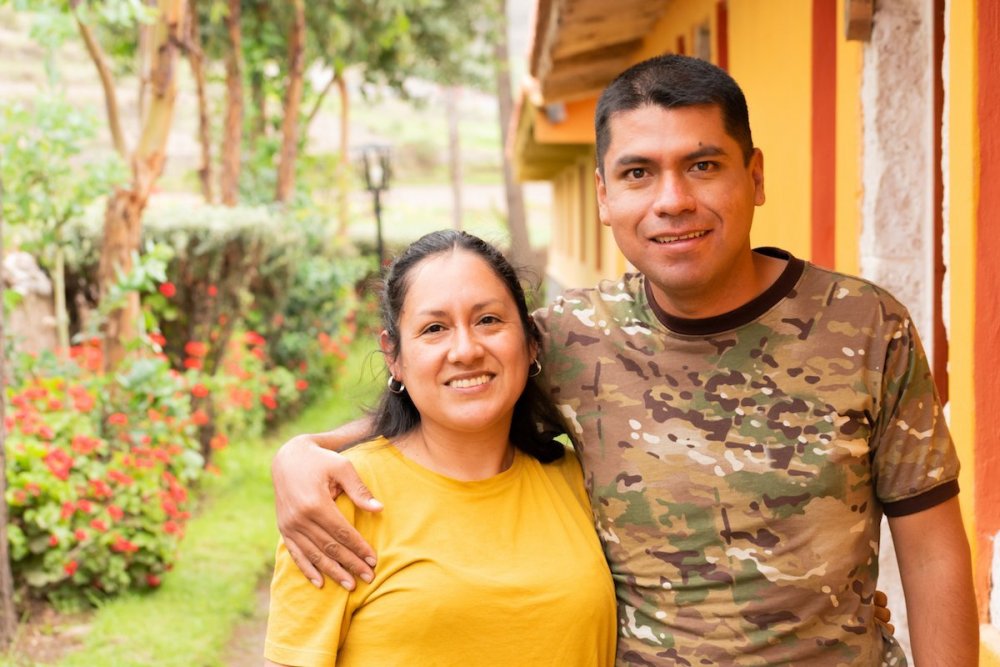Does the freedom to disregard the conventional relationship norms and craft relationships on one’s own terms result in increased happiness? Sonia Vadlamani explains what relationship anarchy entails, and how its tenets may help people be happier in their relationships.
It is safe to say that most of us have heard of polyamory, and some of us even have at least one friend or acquaintance who is in an ‘open relationship’. Indeed, we’re witnessing the rise of ethical non-monogamy, as multi-partner relationships are finding their way into the mainstream in the form of polyamory, open relationships, relationship anarchy, etc.
Despite these changes, a monogamous relationship is still the most common relationship model, in addition to being the one with highest societal recognition as well. However, today we find more and more people abandoning the conventional relationship structure of monogamy to embrace more open relationship models.
A 2017 survey conducted on a representative sample of 2003 Canadian adults revealed that one in five adults had engaged in an open relationship at some point. And a 2020 poll found that around one third of Americans consider their ideal relationship to be non-monogamous to some degree.
The traditional relationship hierarchy prioritizes family the most, which includes the family of origin (i.e., parents, siblings etc.) and forming family systems with spouse or romantic partner and children. While some of the forms of ethical non-monogamy or ENM still involve certain structures or prioritized partners, relationship anarchy (RA) disregards the conventional hierarchies altogether, thus relinquishing any imposed expectations.
RELATED: Why is Family Important For Happiness?
Amy Gahran, writer and author of Off the Relationship Escalator, describes the societal pressure to adhere to monogamous relationships as a relationship escalator. “My approach to life and love is to have as many strong, healthy connections and interconnections as I can feasibly support,” says Gahran, who portrays parting from the monogamous relationship model as ‘stepping off the relationship escalator’ in order to be able to derive more from one’s relationships.

Relationship anarchists believe that love is abundant shutterstock.com/dekazigzag
Whether you’re happy in your relationships without hierarchy or are happily monogamous yet enjoy and value intimate friendships in consensus with your partner, aspects of relationship anarchy can potentially transform your relationships for the better.
So, what is relationship anarchy exactly?
Coined by Swedish feminist Andie Nordgren in 2016, relationship anarchy (RA) assigns no specific importance to one relationship over another, and thus shuns hierarchies created by societal conventions. Relationship anarchists refrain from assigning different values to their relationships as per the prescribed norms. For example, a sexual relationship does not hold necessarily priority over an intimate friendship for those practising relationship anarchy.
Instead of attempting to rank and prioritize the people and relationships in one’s life, Nordgren recommends that you “cherish the individual and your connection to them.” Indeed, research reveals that high quality relationships as the key to a good life, and RA can prove to be the chosen medium for forming fulfilling relationships for some.
“As long as you are questioning the status quo, examining your values, and communicating your needs, it is possible to build a radical relationship anarchist life,” reasons Dedekar Winston, a relationship coach who also co-hosts the podcast Multiamory.
“Relationship anarchy assigns no specific importance to one relationship over another, and thus shuns hierarchies created by societal conventions.”
Relationship anarchy is still in its early emergence phase, and overall, there are several loopholes and misconceptions associated with the ENM relationship models. Nevertheless, even as someone happily in a monogamous relationship, I do find we could all learn a great deal from the tenets of RA, so we could devise fulfilling and successful relationships for ourselves.
The RA manifesto
Nordgren put forth an instructional manifesto for relationship anarchy in 2006, to serve as a guide for those who already are in relationship structure like RA or aspire to be relationship anarchists:
1. Love is abundant, and every relationship is unique
RA challenges the belief that love is a limited resource, and valid only when shared between a couple. We are capable of loving different people, and the love shared in one relationship does not automatically challenge or weaken the love we feel in another relationship that we cherish. Relationship anarchy emphasizes on the love and connection experienced between the two (or more) parties in each unique relationship, instead of comparing or ranking different relationships.
2. Love and respect instead of entitlement
Relationship anarchy grants autonomy to every individual in a relationship, where boundaries, personal beliefs and values are meant to be respected. Instead of viewing relationships as grounds to control or command others, RA deems mutual respect and healthy boundaries as the foundation for a happy relationship.
3. Find your core set of relationship values
Since RA is based on mutual trust and respect for boundaries, it is essential to define your core values to be able to clearly formulate your needs and expectations in all your relationships. Self-reflection can help you determine your boundaries, motivation and fears. Focusing on these core relationship values with assertiveness will can help you cultivate fulfilling relationships.
RELATED: What Is a Situationship? Here Are the 6 Signs You're In One
4. Heterosexism is rampant and out there, but don’t let fear lead you
While relationship anarchy does question the normative relationship structures, it is important to remember than heterosexism is still largely prevalent, and continues to dictate what is a moral, correct and acceptable form of love. It is our duty to question and break these conventional gender-based molds and set our own expectations and boundaries for all our relationships.
5. Build for the lovely and unexpected
RA emphasizes on the freedom to be spontaneous and express one’s wishes and desires without judgment or the fear of punishment based on ‘should’s and ‘ought-to’s. Indeed, staying curious in life, and introducing some play can improve the quality of relationships and make people happier.
6. Fake it til’ you make it
Challenging the conventional relationship structures like monogamy and other heterosexist norms could seem like an uphill task sometimes. Instead of reproaching themselves for choosing relationship anarchy during such adverse times, one needs to push through and stick to the guidelines they defined for their relationships. Seeking support from others who are in norm-challenging relationships can help reinforce your resolve and adapt better.
7. Trust is better
It is normal for trust issues to crop up sometimes in relationships, but we can avoid taking a skeptical approach and try dealing with the same through positive communication and persistence. Choose to trust that your partner wants the best outcomes for you in the same way that you wish for them. Cultivate a supportive environment where it is possible to overcome fear of abandonment and other validation-seeking behaviors, with an aim to develop a more secure attachment style.

Cultivating trust is essential in relationship anarchy
8. Change through communication
It is ideal to find realistic and healthy ways to answer issues which may sometimes occur in your relationship, like jealousy or emotional dependency. Communication could be the key, and thus an objective and non-judgmental discussion about the underlying issues or feelings can go a long way to strengthen the relationship.
9. Customize your commitments
As Nordgren puts it, RA “is not about never committing to anything – it’s about designing your own commitments with the people around you”. Whether you wish to raise children, grow old together or enter into a marriage, relationship anarchy offers freedom to define your core values, needs and expectations and match the same with your partner so that you can construct and lead a content and meaningful life together.
Is RA the same as polyamory?
Also a form of ENM, polyamory refers to relationships wherein people consent to have more than one romantic or sexual partner at a given time. Informed consent is differentiating factor here, as its absence would deem it ‘cheating’ or unethical non-monogamy.
RELATED: What is Omnisexuality? Understanding and Debunking Myths
However, polyamory is not synonymous with relationship anarchy. While people in polyamorous relationships do prioritize some relationships over another, RA aims to entirely dismiss pre-defined boundaries and hierarchies, while offering full freedom to the partners in the relationships to customize and communicate their own boundaries and prioritize all relationships alike.
“Relationship anarchists refrain from assigning different values to their relationships as per the prescribed norms.”
Interestingly, monogamous couple can decide to be relationship anarchists as well, by deciding to not abandon their friendships and other platonic associations that they value. As Winston puts it, one can be “sexually or emotionally monogamous with a particular person and still be a practicing relationship anarchist”. Of course, determining their core values and communicating the same to their partner is key for any fulfilling relationship.
Takeaway: relationship anarchy
While it’s mistakenly thought of as a reckless indulgence, or sometimes branded as the unwillingness to commit to a relationship, relationship anarchy can be best defined as a conscious, self-led approach towards what you and your partner(s) seek from a relationship.
Indeed, designing your relationships as per your needs and expectations instead of societal pressure can entail a great deal of effort, maturity and trust. Relationship anarchy relies strongly on understanding oneself deeply, listening mindfully with empathy, and the ability to communicate one’s needs clearly. But then, so do most successful relationships, regardless of the relationship structure they may be based on. •
Main image: shutterstock.com/Carlos Olivera
Does relationship anarchy appeal to you or it something you would never consider? Share your thoughts in the comments below! Subject got you interested? Then chat with other members in our relationships forum.
happiness.com | The fine art of being: learn, practise, share
Are you a happiness.com member?
Join free now and:
■ enjoy our happiness magazine
■ share and support in our happiness forum
Trust | Deep listening | Empathy | Communication skills
Written by Sonia Vadlamani
 Fitness and healthy food blogger, food photographer and stylist, travel-addict and future self journaler. Sonia loves to write and has resolved to dedicate her life to revealing how easy and important it is to be happier, stronger and fitter each day. Follow her daily pursuits at FitFoodieDiary or on Instagram.
Fitness and healthy food blogger, food photographer and stylist, travel-addict and future self journaler. Sonia loves to write and has resolved to dedicate her life to revealing how easy and important it is to be happier, stronger and fitter each day. Follow her daily pursuits at FitFoodieDiary or on Instagram.



Join the conversation
You are posting as a guest. If you have an account, sign in now to post with your account.
There are no comments to display.